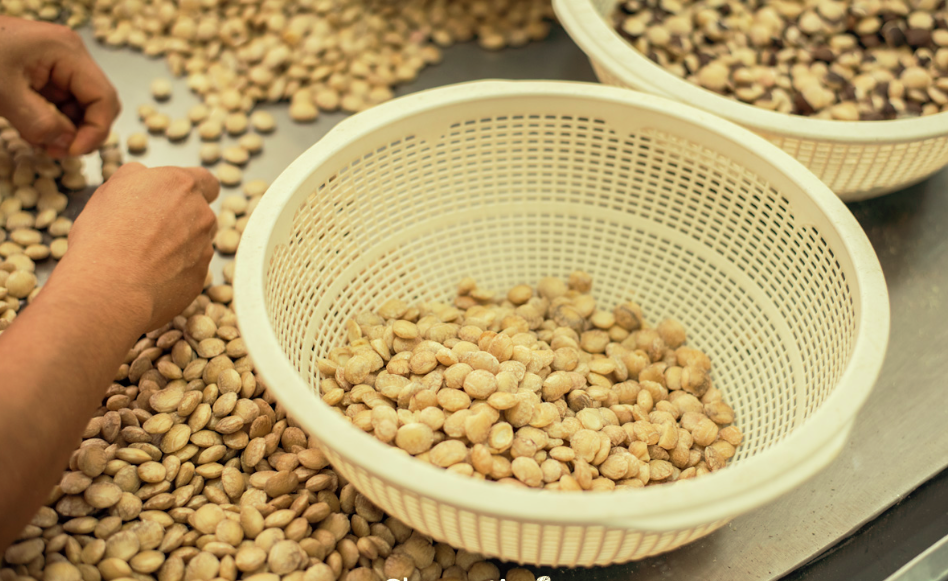NESsT is thrilled to welcome Shanantina to its portfolio as the NESsT Fund closes another investment in a pioneering social enterprise helping indigenous communities thrive in the Peruvian rainforest.
The loan will advance the enterprise's ability to process its products in innovative ways and to serve the growing international superfood markets with sacha inchi, a healthy and tasty nut that enables indigenous farmers to access higher incomes while advancing forest conservation in Peru.
Shanantina is a social enterprise that works exclusively with indigenous communities to cultivate sacha inchi, a nut that is native to the Peruvian Amazon, and has been used by indigenous people in Peru for at least 2,000 years.
Among the reasons why indigenous communities work with Shanantina is because the social enterprise follows fair trade principles, paying them 61% higher incomes than other distributors, and provides technical training that enables farmers to grow certified organic products.
“We are excited to welcome Shanantina to our portfolio. We have been impressed by the management team’s perseverance during the pandemic, commitment to educate the global community about the products that the Peruvian rainforest can offer, and dedication to growing sustainably while supporting their community.” shares Chad Sachs, Director of the NESsT Fund.
The NESsT Fund invests in social enterprises and social innovators that are addressing the root causes of poverty for communities in Latin America —for example, the volatility of prices and bargaining power of smallholder farmers. To date, the NESsT Fund has invested in four social enterprises. Together, these enterprises—Inka Moss, Greenbox, CAECOS, and Shanantina—are improving the livelihood opportunities, gender equity, and environmental standards of remote communities in Peru.
We are encouraged by how Shanantina is using the financing to support 600 people with accessing technical training, stability of demand and fair prices.
As part of the NESsT Portfolio, Shanantina will access business assistance to improve its governance, financial management, and social impact measurement and strategy. The enterprise already sources 50% of its product from women and follows regenerative farming principles, such as limiting the land used for sacha inchi to <25% so that natural species can continue to grow and bringing formerly deforested lands back to life by planting sacha inchi along with beans, bananas and other natural species. With NESsT support, the enterprise will track its impact in order to ensure that it continues to adhere to these practices as it scales with these new round of financing.
“We are grateful for the support of NESsT because with this new loan we will be able to open new product lines and increase the number of national and international partners Shanantina can work with. Competitive, more flexible financing like this allows social enterprises like ours to benefit more workers and suppliers in the area. The NESsT team has already begun adding value during due diligence, such as with building a Board of Directors and outlining key growth initiatives and indicators that are important to our long-term success.” — Michel Paz Monge, Co-Founder and General Manager of Shanantina
The clients that purchase from Shanantina support the rise of biodiverse products that prevent monocrop agriculture in the rainforest as well as the improvement of the living conditions of the indigenous farming communities of the provinces of Lamas and El Dorado, located in the region of San Martín in Peru.
Sacha inchi is a product with growing international appeal because it is a vegan source of omega-3 and omega-6 fatty acids, a type of fat that the human body cannot produce but is essential to important functions of the heart, brain and metabolism. Shanantina currently exports to the United States and Taiwan where trends towards healthy and plant-based eating are on the rise. For people who want to reduce their seafood consumption without sacrificing their access to omega fatty acids, you can now add sacha inchi snacks, flour, oil and nuts to their diet.
About NESsT
NESsT has focused on addressing the economic needs of the poor for over 24 years. We offer social enterprises patient capital and business advisory services over the course of several years helping them to consolidate and grow their companies and impact. During the past six months, over 700 enterprises in six countries have applied to join our portfolio but only 3% will be selected for multi-year support by this summer. These 20 new enterprises will have successfully completed a competitive review and due diligence process that spans around six weeks. The proposals are evaluated based on the merit of each business model in meeting market demand through the employment of low-income and excluded communities, as well as a series of other criteria such as the strength of its leadership team, governance, financial management, and environmentally-responsible practices.







